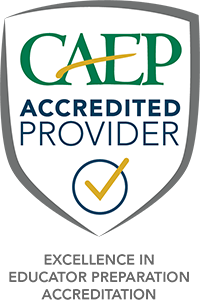
Curriculum & Courses for the Master of Arts in School Leadership and Management
Course Work By Term
- Term One
- MBA 611- Data Visualization (Hybrid, 16 weeks)
- MSM 631 - Leading Organizational Change (Asynchronous, 16 weeks)
- EDUC 597 - Internship (Asynchronous, 16 weeks)
- Term Two
- EDUC 597 - Leading School Capacity Culture & Teams (Hybrid, 1st 8 weeks)
- EDUC 603 - Leading Equity in Education Reform (Hybrid, 2nd 8 weeks)
- EDUC 597 - Internship (Asynchronous, 16 weeks)
- Term Three
- EDUC 625 - School Law & Policy (Hybrid, 1st 8 weeks)
- EDUC 597 - School Finance, Operations & Resource Management (Asynchronous, 2nd 8 weeks)
- Term Four
- EDUC 597 - Curriculum, Instruction & Assessment (Hybrid, 1st 8 weeks)
- EDUC 605 - Leading Data Informed Collaborative (Hybrid, 2nd 8 weeks)
- EDUC 597 - Internship (Asynchronous, 16 weeks)
- Term Five: EDUC 597 - Capstone Internship (Asynchronous 16, weeks)
Required Courses
This course focuses on the area of data visualization. This is the process of representing business or scientific data typically in a tabular format as images and charts that can aid in understanding the meaning of the data.
This course addresses improving skills critical to increasing organizational effectiveness and responding to the rapid pace of change in today’s business environment. Students will explore fundamental areas necessary to leading an effective individual, team, and organizational change efforts. The focus is on uncovering the traps that create stress, waste resources, slow change efforts, or lead to outright failure, and discover how to lead, cope, and win in the face of great change.
The Principalship
This course prepares aspiring principals for effective educational leadership. Topics include school communication, stakeholder engagement, community resource utilization, talent development, team building, and empowering teacher leaders. Students will also explore school marketing and capacity-building strategies. Through theoretical and practical learning, participants will develop skills to foster positive school cultures and drive institutional success.
This course surveys social, political, and economic forces that have shaped U.S. public schools and the contemporary school reform movement. Candidates will explore the roots of educational inequality, the history of school reform, and the most prominent reforms in American school systems. Candidates will also examine data related to opportunity gaps between student groups and consider the school leader’s role in dismantling patterns of inequity and exclusion.
Special Education Systems, MTSS, PBIS, and Dis/ability
This course equips school administrators with essential knowledge of education law and decision-making skills. It emphasizes systematic, logical processes while building a comprehensive understanding of federal and state education laws, focusing on Indiana legislation. Through analysis of case studies and hypothetical scenarios, students will learn to apply legal principles to common administrative challenges, including student rights, teacher employment, special education, school safety, and First Amendment issues. The curriculum integrates legal knowledge, ethical considerations, and practical skills, enabling administrators to make informed, legally sound decisions that serve the best interests of their school communities.
This course examines the complex systems and policies that govern K-12 education funding. Students will explore various sources of school revenue, including local, state, and federal funding mechanisms and the intricacies of budgeting, resource management, and the operation of the school's physical plant.
This course explores advanced strategies to enhance student learning through effective teacher support, curriculum development, and collaborative practices. Participants will develop skills in student-centered coaching, teacher evaluation, and instructional leadership, focusing on curriculum alignment and implementation. The course emphasizes forming and facilitating Professional Learning Communities (PLCs) to foster collaborative problem-solving and continuous improvement.
This course enables school leaders to enhance their understanding of how consistent and systemic use of data shifts school cultures toward learner-centered communities that recognize opportunity gaps in learning among student populations. Through data analysis, candidates learn a process for collaboratively inquiring with school faculty to identify significant student learning problems, design research-based intervention strategies, and monitor effectiveness, contributing to building school capacity, instructional expertise, and institutional success.